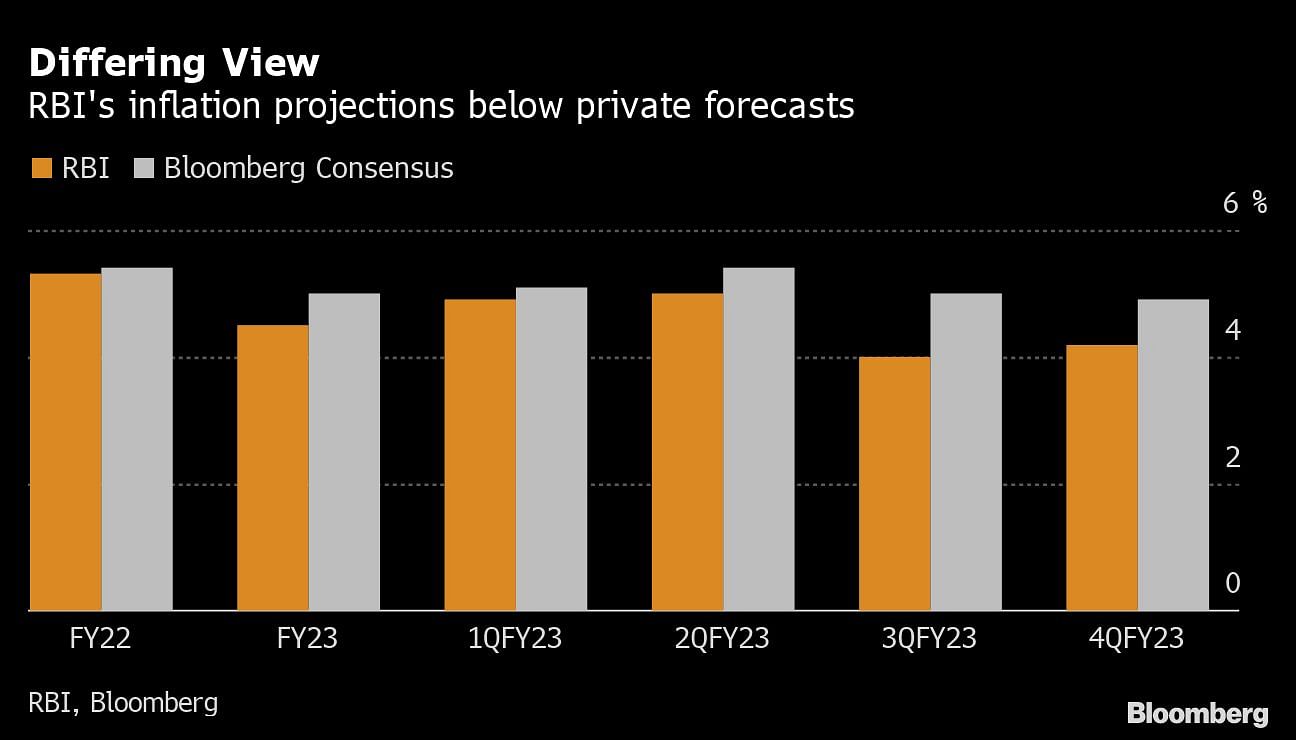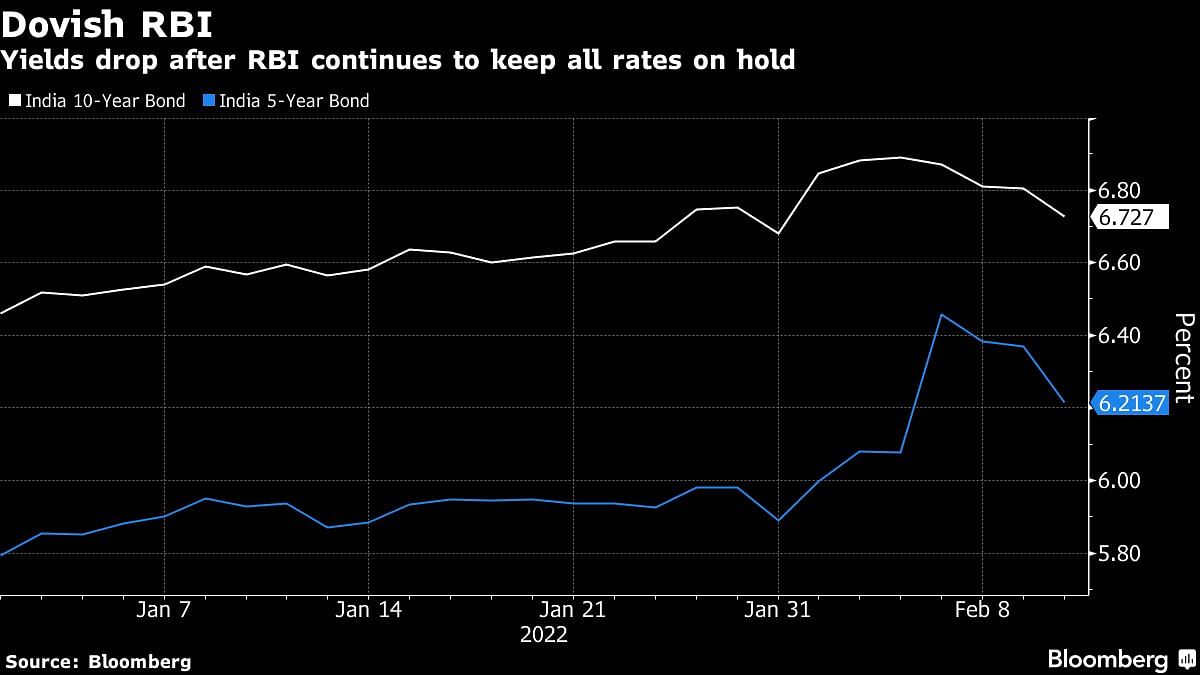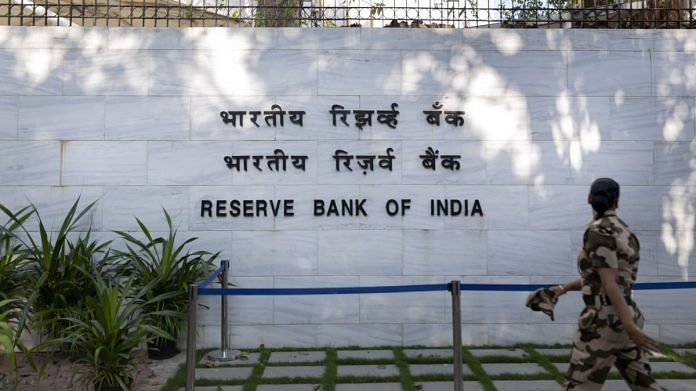Mumbai: Economists are challenging the relaxed view on inflation by India’s central bank, which surprised markets Thursday when it opted to avoid any major signs of normalization and kept policy tilted toward growth.
Citigroup Inc. and Standard Chartered Plc were among those calling out the projections as too dovish as fuel prices surge, cost pressures mount and demand rebuilds from the pandemic. Bond markets, which were expecting some signs of tightening, rallied after the Reserve Bank of India’s decision.
“RBI’s defense that it is not behind the curve comes from their own rigorous analysis and forecast on the likely inflation trajectory ahead,” said Suyash Choudhary, head of fixed income at IDFC Asset Management Ltd. “This assessment is markedly different from most of the private sector forecasts. It is then a matter really about who turns out to be right on the assessment eventually.”

India is beginning to diverge from many other major global central banks, which now see price pressures as more entrenched and in need of action. Just hours after the RBI decision, the U.S. reported consumer prices at a four-decade high in January, building a case for multiple rate hikes by the Federal Reserve this year.
After the decision Thursday, Governor Shaktikanta Das and his colleagues said the nature of inflation in India was different from the experience of the U.S. and other advanced economies. The central bank had also taken into account various scenarios for oil prices, which have been surging, and that making correct projections were a matter of credibility for the central bank, Das said.
What Bloomberg economics says…
The “decision to keep the reverse repo rate steady runs against the grain of its recent moves to get a handle on excess liquidity, a latent source of inflationary pressure. This delays the policy normalization process and puts the central bank’s inflation-fighting credentials at risk.”
— Abhishek Gupta, India economist
The RBI has admitted in the past that its inflation projection model could go wrong, and that there is scope for improvement. Last year, the monetary authority said it has revised its inflation-forecasting model to better capture how fiscal and monetary policy interact with real-economy elements. The adjustments incorporate fiscal-monetary dynamics, India’s unique and often chaotic fuel pricing regime, and exchange-rate fluctuations and their impact on balance of payments, it said.
The central bank sees retail inflation at 4.5% level next fiscal year, lower than the 5% consensus estimate in a Bloomberg survey. It’s outlook for the second half is jarringly lower with the fiscal third quarter and fourth quarter estimates at 4% and 4.2%, respectively, against 5% and 4.9% seen in the survey with the central bank hoping easing food prices will help check price pressures.
“We expect these benign inflation projections to be revised higher at subsequent meetings, as input price pressures are yet to be passed on to the economy,” Standard Chartered Plc economists including Anubhuti Sahay wrote in a note. “Unless commodity prices correct significantly from here, achieving the FY23 inflation target of 4.5% will be challenging.”
The RBI surprised the markets Thursday by keeping the reverse repo rate unchanged, belying widespread expectations of a hike to signal progress toward policy normalization. Bonds rose after the move, while the rupee fell, on concerns the central bank was falling behind its peers.

“We found the MPC statements and the comments from the RBI governor to be needlessly dovish,” said Arvind Chari, chief investment officer at Quantum Advisors Pvt. “The bond markets have already priced in a move away from accommodative policy in the months to come.”
While bond markets have cheered the unexpected dovish policy, Citigroup said that it was not without risks.
“With RBI MPC sticking to its dovish stance, risks are mounting for assessment that policy is falling behind the curve,” Citigroup economists including Samiran Chakraborty wrote in a note. “While the short tenor rates will likely struggle to recover from overwhelming RBI dovishness, long tenor rates are likely to price in fear of larger quantum of cumulative hikes, the longer is the delay to get on with it.” –Bloomberg
Also read:






